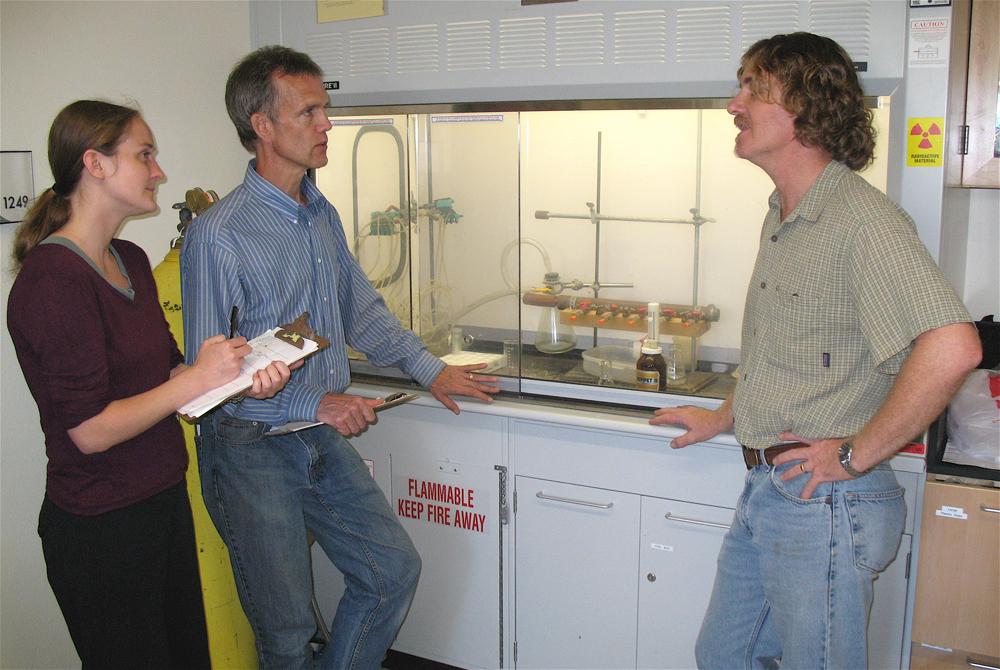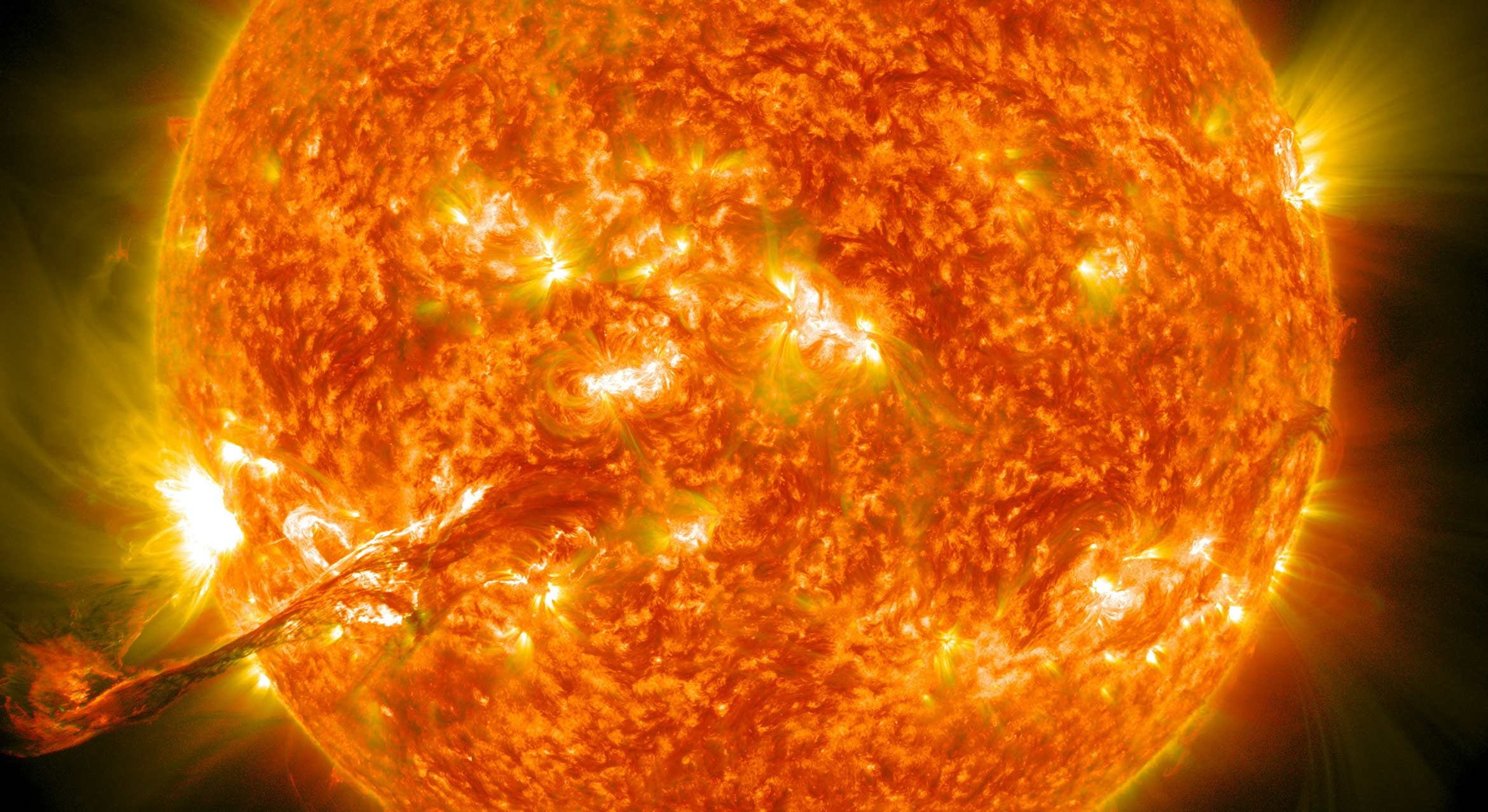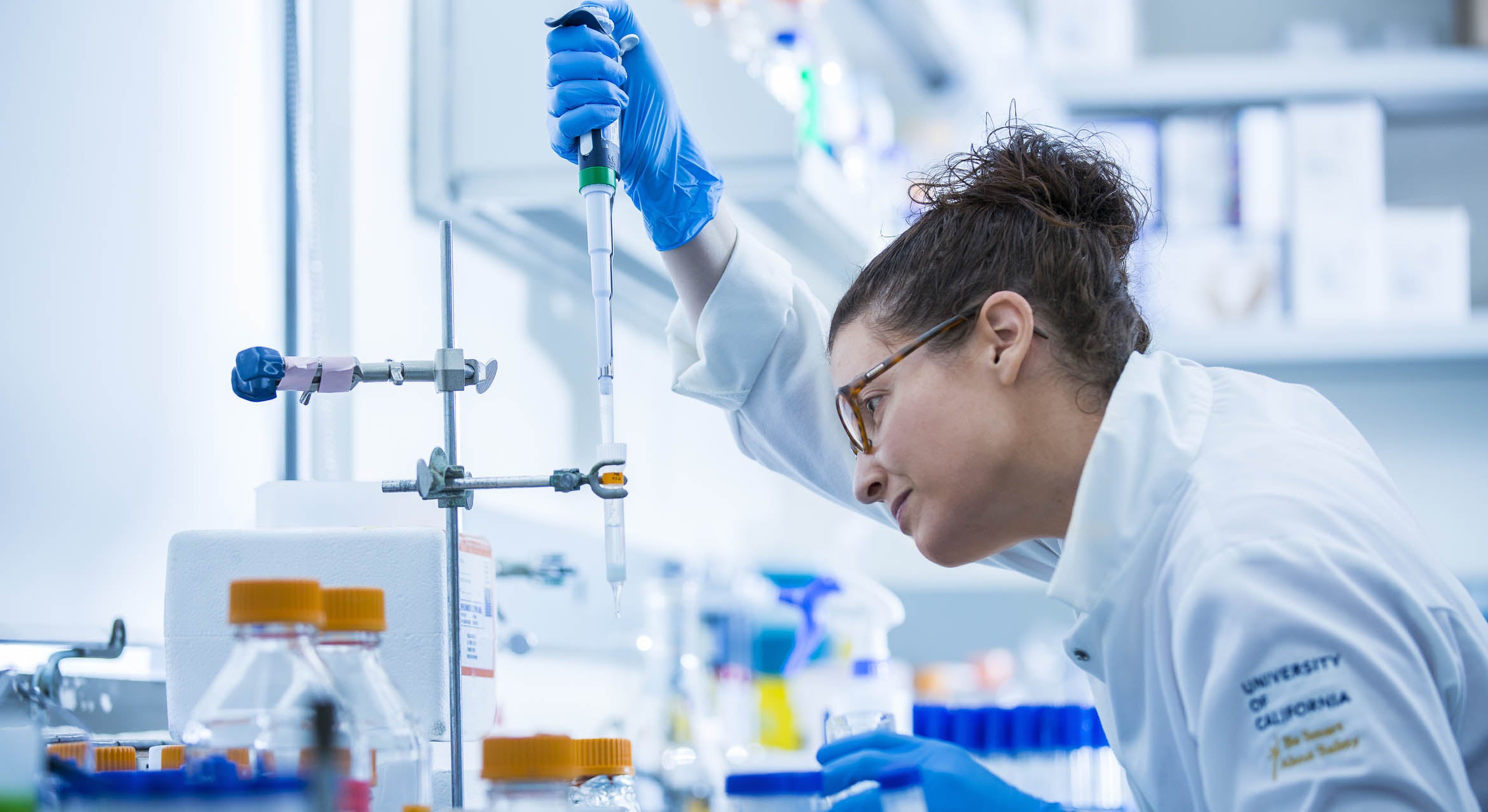
For Allen Doyle and the rest of the LabRATS, a profile that ran in the prestigious journal Science last year was the greatest tribute of all to their hard work in making UC Santa Barbara's laboratories more environmentally conscious and efficient. Until now.
UCSB's Laboratory Research and Technical Staff (LabRATS) will receive the Organization Award at the first-ever Go Beyond Awards this week in San Jose, Calif. The award will be presented Thursday at the Labs21 2008 Annual Conference by the International Institute for Sustainable Laboratories (I2SL) and R&D Magazine. The Go Beyond Awards honor individuals, organizations, projects, and laboratory manufacturers that "go beyond" the status quo to minimize the environmental impacts of laboratory and other high-technology facilities and laboratory equipment.
Doyle, manager of the soil ecology lab at UCSB, and his intern, Sonam Gill, will be among those in San Jose to accept the award. He and two other staff members – Katie Maynard, sustainability coordinator for UCSB, and Jeff Kirby, development engineer in the Donald Bren School of Environmental Science & Management – have devoted thousands of hours to the LabRATS program since it was created in 2005. For all three, it's been a labor of love. They all have other full-time responsibilities on campus, so much of the time they have devoted to LabRATS has been as volunteers.
"This award shows that we can get an amazing amount of things done, just working informally at the grassroots level," Kirby said.
LabRATS got off to a modest start, with a couple of piecemeal sustainability programs that Doyle and Kirby realized could be pulled together to focus on the environmental impacts of laboratories. Maynard, who graduated from UCSB in 2005, joined them and soon they were adding interns – some of them paid thanks to grants – and undergraduate volunteers. Shortly thereafter, the informal group had evolved into what is now LabRATS.
"The unique thing about our program is that we're comprehensive and behavioral-based," Maynard said. "There's no other program in the country that is both. Every other program focuses on energy, or just water, but we focus on everything."
Doyle, Maynard, Kirby, and their fellow lab detectives divide their time among several key projects:
• Free chemicals. Using a Craigslist-like Web site, the LabRATS have created a one-stop shopping destination where UCSB researchers can get donated surplus chemicals
for their experiments. "So instead of going online and buying new chemicals, they can just go to our Web site, pick a chemical and we deliver it to them," said Gill, an undergraduate intern who coordinates the surplus chemicals program.
• Thermometer exchanges. Using grant funds, the LabRATS purchased 350 alcohol thermometers, hoping to exchange those for the more hazardous mercury thermometers. The response was overwhelming. "We had a goal of exchanging 300 mercury thermometers in a year," Maynard said. "We actually had 801 thermometers handed in to the program."
• Bulb-free lighting. The program encourages labs and researchers to use daylight and reduce excessive overheard lighting. Researchers can now request to have fluorescent tubes either removed or deactivated. Also, the LabRATS can provide advice on more efficient appliances for the labs.
• Fume hood management. The LabRATS inspect the glass panels on fume hoods, the exhaust vents used in almost every lab, and recommend ways to help researchers and lab workers make them more efficient. According to Doyle, simply closing the glass doors on the hoods can save thousands of dollars each year with no inconvenience. Doyle added that some labs can temporarily deactivate their hoods if they're not needed, making the workspace quieter and more efficient.
• Laboratory assessments. The team has checked some 30 labs in the past few years. That's a good start, but they have a lot more work to do – there are an estimated 700 laboratories on campus. The team assesses everything from how many light bulbs are needed, to the temperature of the rooms.
Is there a way to recycle more equipment? Are experiments done efficiently? These are just a few of the questions the LabRATS ask researchers and lab managers during their examinations.
"We are a voluntary program," Doyle said. "We initially try to bring a resource or a piece of equipment that will actually improve their research. So we're not just taking up their time – we're actually providing something that will make it go better."
At one point last year, there were nine LabRATS – Doyle, Maynard, Kirby, and a variety of interns, graduate students, and undergrads. This award is a validation of the importance of their work, they say.
"I feel like it's going to give us a big boost," Gill said. "By getting this award, I feel like our organization is going to be highlighted. More people are going to be interested. I think that exposure is really big for us, will get us more volunteers."
"It helps us to spread the news about what we're doing," Maynard said, "to spread the model."
Related Links



